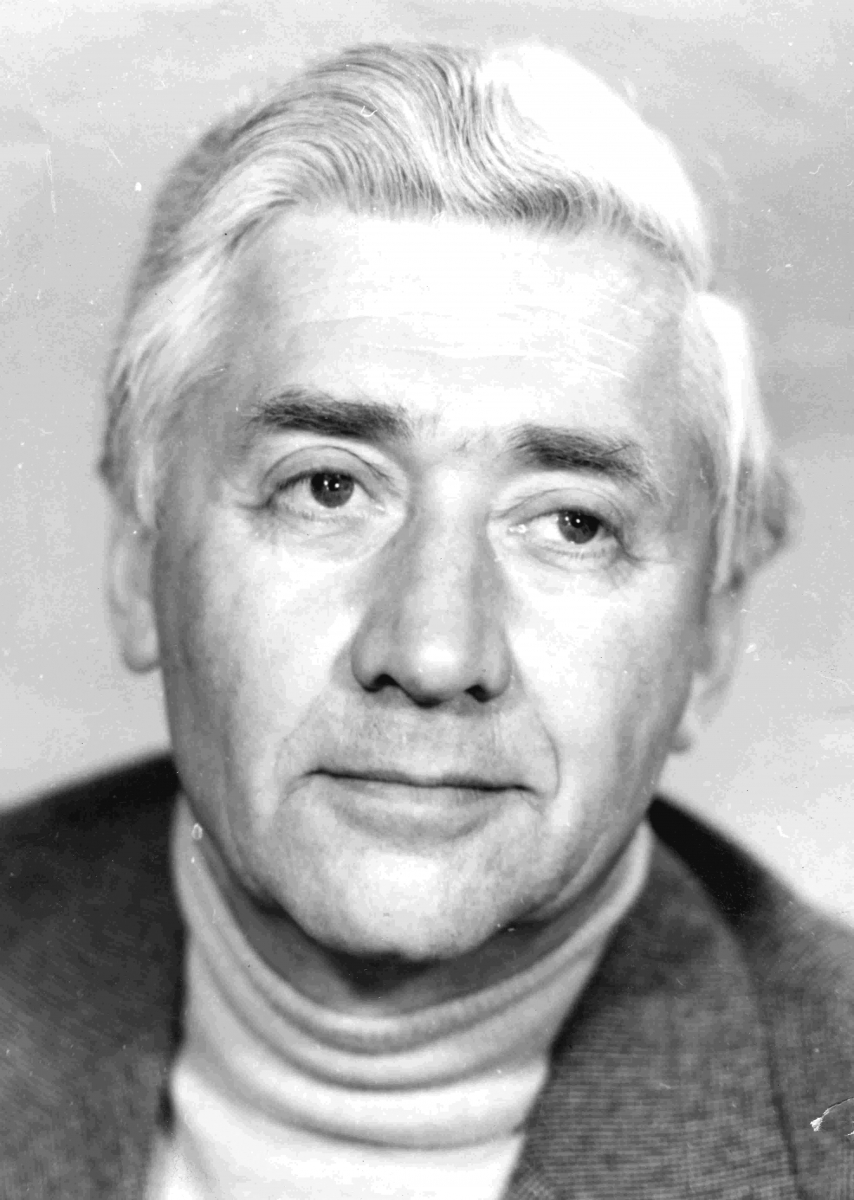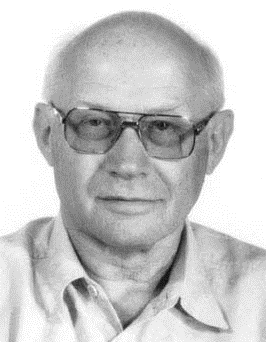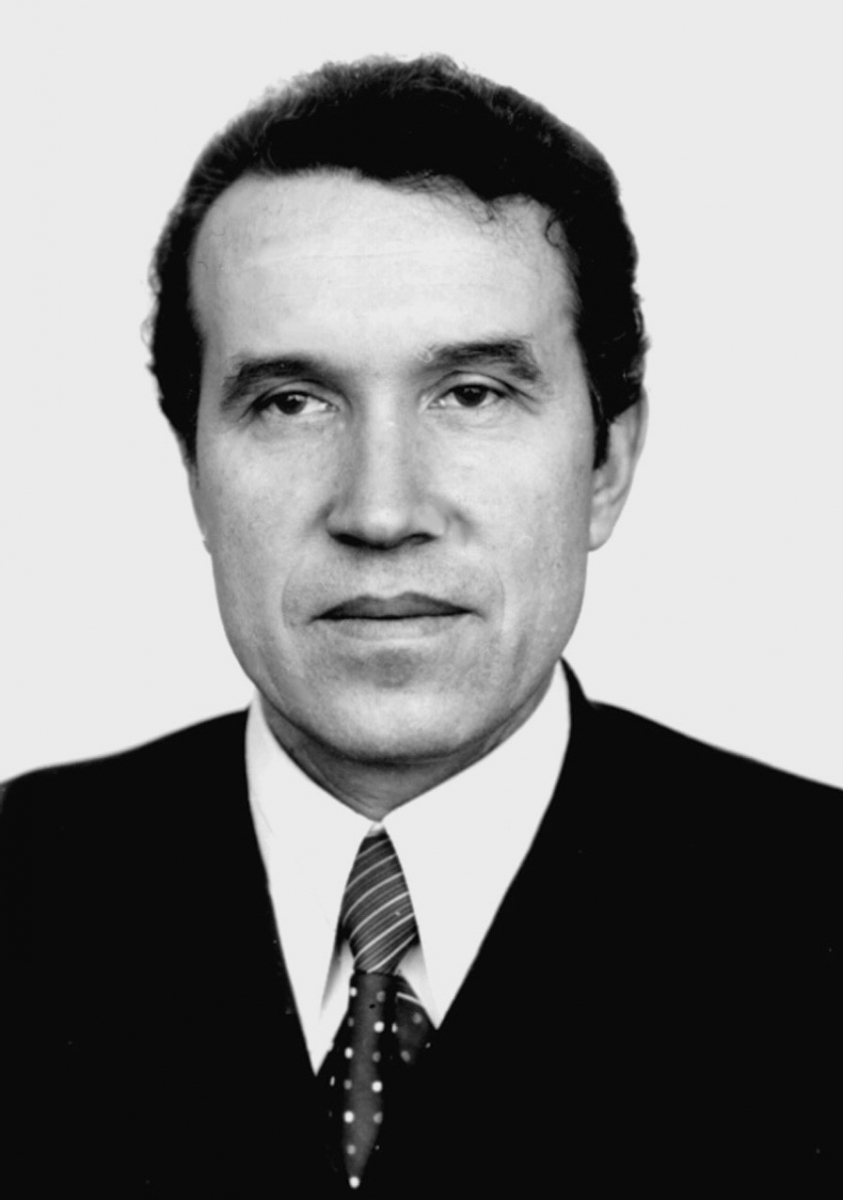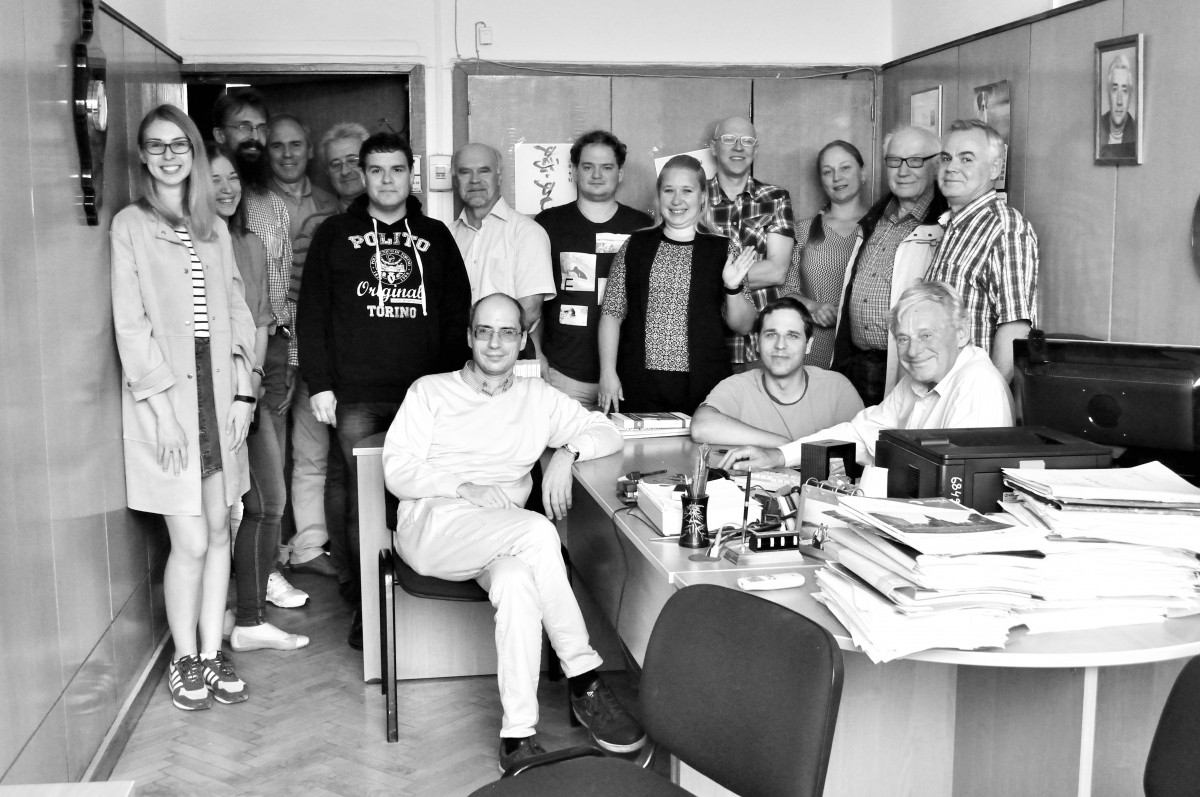ADAPTIVE AND ROBUST SYSTEMS
Named after Ya.Z. Tsypkin
 |
|
Yakov Z. Tsypkin, Founder and first Head of Laboratory No. 7 |
The Laboratory was established in 1956. Academician Yakov Z. Tsypkin was its Head from the very beginning until passing away (1997). Nowadays, the Laboratory bears the name and continues the traditions of its founder and partly his research. The main attention is paid to fundamental problems of automatic control theory. The Laboratory is a major theoretical department of the Institute.
The initial research areas were impulse, relay, and discrete‐time systems. Academician Ya.Z. Tsypkin initiated such works in the country and significantly contributed to their development. His monographs Perekhodnye i ustanovivshiesya protsessy v impul’snykh tsepyakh (Transients and Steady‐State Processes in Impulse Circuits, 1951), Teoriya releinykh sistem avtomaticheskogo regulirovaniya (Theory of Relay Automatic Control Systems, 1955), Teoriya impul’snykh sistem (Theory of Impulse Systems, 1958), and Teoriya lineinykh impul’snykh sistem (Theory of Linear Impulse Systems, 1963) played a huge role in developing and forming these branches of control theory, in the USSR and the world. They repeatedly received high appreciation: the Lenin Prize (1960) and several international scientific awards.
 |
|
Boris T. Polyak |
By the mid-1960s, the center of the Laboratory’s interests shifted toward the problems of adaptation, learning, recognition, estimation, and stochastic optimization. In the books Adaptatsiya i obuchenie v avtomaticheskikh sistemakh (Adaptation and Learning in Automatic Systems, 1968) and Osnovy teorii obuchayushchikhsya sistem (Fundamentals of the Theory of Learning Systems, 1970), Ya.Z. Tsypkin proposed a unified approach to analyzing such systems based on stochastic approximation.
Finally, since the early 1990s, much attention was focused on robust control (control under uncertainty). In particular, the Tsypkin–Polyak hodograph was developed, a simple and convenient graphical criterion of robust stability.
 |
|
Yuri S. Popkov |
 |
|
Nikolay A. Kuznetsov |
The Laboratory raised several researchers who later founded their scientific centers: Academicians N.A. Kuznetsov, B.N.Naumov, I.M. Makarov, and Yu.S. Popkov; Doctors of Sciences M.A. Krasnosel’kii, N.A. Bobylev, Novosel’tsev, A.M. Petrovskii, A.S. Poznyak, A.I. Propoi, E.D. Avedyan, and many others. Famous foreign scientists L. Ljung (Sweden) and P. Kokotovich (USA) were trained in the Laboratory.
In 1998–2013, the Laboratory was headed by Dr. Sci. (Eng.) B.T. Polyak. Since 2013, the Head has been Dr. Sci. (Phys.–Math.), RAS Prof. M.V. Khlebnikov.
Presently, the Laboratory staff consists of 17 employees: Doctors of Sciences M.V. Khlebnikov (Head of the Laboratory), M.V. Balashov, A.I. Glushchenko, A.V. Nazin, B.T. Polyak, Yu.S. Popkov, V.N. Chestnov, and P.S. Scherbakov; Candidates of Sciences V.A. Alexandrov, Ya.I. Kvinto, S.E. Parsegov, I.G. Rezkov, D.V. Shatov, and A.A. Tremba; leading engineer E.A. Stefanyuk; engineer M.Yu. Danilova; technician K.A. Lastochkin.
 |
The Laboratory conducts research in several areas:
• The theory of linear automatic control systems. The focus is on difficult and topical problems such as the design of controllers with a given structure (particularly low-order controllers) and static output controllers, simultaneous stabilization, and control under persistent disturbances. Laboratory’s employees developed several effective approaches to solving these problems. One approach is based on the concept of superstability (a sufficient condition of stability in terms of linear conditions on the entries of the system matrix), which makes linear programming applicable to the difficult problems mentioned above. Also, note the probabilistic approach to the solution of these deterministic problems. Generally speaking, randomized algorithms proved to be very effective for solving various control and optimization problems.
 |
|
Mikhail V. Khlebnikov, Head of Laboratory No. 7 |
• Control robustification, going back to Ya.Z. Tsypkin. According to a common assumption of the classical control theory, the system model is known or estimated during identification. Meanwhile, in real problems, the plant’s characteristics contain inevitable inaccuracies. The robust theory is of great interest for researchers worldwide: it offers methods for considering such uncertainties. In the first years of work, the focus was on analysis problems (robust stability). In recent years, they were shifted to more important design problems (robust control). It turned out that superstability and the probabilistic approach are useful for solving difficult robust control problems. The classical D-partition theory is convenient for solving modern analysis and design problems for robust systems. It was developed at a new level by Laboratory’s employees.
• The study of control systems with arbitrary bounded exogenous disturbances and system uncertainties. Effective suppression methods were developed for exogenous disturbances based on the ellipsoidal description and linear matrix inequalities. Algorithms were proposed to design state- and output-feedback controllers; a technique was developed to filter exogenous disturbances.
• Adaptive control of stochastic systems. This research area, traditional for the Laboratory, is further developed in two directions. Within the information approach, the maximum possible convergence rates of stochastic algorithms are established. The frequency theory of adaptive control is developed based on system identification with harmonic effects and controllers design using the theory of optimal control.
In addition to theoretical studies, the Laboratory conducts applied R & D works: several patents of the Russian Federation were received.
Laboratory’s employees regularly appear in high-rank Russian and foreign peer-reviewed journals. In the past few years, over 100 articles have been published in such journals, and over 100 papers have been presented at leading Russian and international conferences.
Among the publications of recent years, note the book Yakov Zalmanovich Tsypkin (1919-1997), edited by B.T. Polyak, Moscow: LKI, 2007. The book is devoted to the Laboratory’s founder and describes its path and achievements.
Another monograph, Upravlenie lineinymi sistemami pri neopredelennostyakh i vneshnikh vozmushcheniyakh: tekhnika lineinykh matrichnykh neravenstv (Control of Linear Systems under Uncertainties and Exogenous Disturbances: The Linear Matrix Inequalities Technique), Moscow: URSS, 2014, was written by B.T. Polyak, M.V. Khlebnikov, and P.S. Shcherbakov. It was awarded the Petrov Prize of the RAS Presidium in 2016. The book considers linear matrix inequalities and the technique of invariant ellipsoids with applications to control of linear systems subjected to exogenous disturbances and system uncertainties. Several results presented therein have not been earlier covered in the Russian literature.
The Laboratory cooperates with leading international research centers: University of Wisconsin-Madison (USA), Technion (Israel), Linköping University and Kungliga Tekniska Högskolan (Sweden), Politecnico di Torino (Italy), INRIA (France), CINVESTAV (Mexico), and Melbourne University (Australia).
In recent years, the Laboratory participated in several international projects:
– The collaboration program between the Russian Academy of Sciences (RAS) and the Italian National Research Council (CNR), project “Methods for Estimation and Identification of Signals in Intelligent Wireless Networks” (2011–2013);
– The collaboration program between RAS and CNR, project “New Monte Carlo Methods in Control with Applications in Information Technology” (2008–2010);
– The joint Russian-French project RFBR-NTsNI_a (PICS) 07-01-92166-NTsNI_a “Robust and Adaptive Control of Complex Systems” (2007–2010), and others.
Laboratory’s employees repeatedly received different prizes and awards. B.T. Polyak, M.V. Khlebnikov, A.V. Nazin, and P.S. Scherbakov are laureates of the ICS RAS Prizes named after A.A. Feldbaum, A.M. Letov, Ya.Z. Tsypkin, B.N. Petrov, and V.S. Kulebakin. B.T. Polyak is a laureate of the RAS Prize named after A.A. Andronov (1994). He was the first researcher in Russia to obtain the honorary title of IFAC Fellow (2006). Six years later, B.T. Polyak was awarded the Gold Medal of the European Association for Operations Research (EURO Gold Medal, 2012), and in 2021 he was awarded the Khachiyan prize for his life-time achievements in optimization.
The Laboratory is widely represented in editorial boards of Russian and foreign peer-reviewed journals: Automation and Remote Control, Control of Large-Scale Systems, Control Sciences, Journal of Optimization Theory and Applications, Numerical Functional Analysis and Optimization, Computational Optimization and Applications, Control and Cybernetics, and Applied and Computational Mathematics. Laboratory’s employees are members of scientific and dissertation councils (ICS RAS; Institute for Systems Analysis, Federal Research Center “Computer Science and Control” RAS; Institute for Information Transmission Problems RAS) and members of program committees of international and Russian scientific conferences.
Laboratory’s employees are active lecturers at the Moscow Institute of Physics and Technology (P.S. Scherbakov), the Higher School of Economics (A.V. Nazin), the National University of Science and Technology (MISIS) (V.N. Chestnov), and other universities. Since 2007, a young scientific school has been operating in the Laboratory, led by B.T. Polyak.
Laboratory’s employees organized 10 Traditional All-Russian Youth Summer Schools on Control, Information, and Optimization (2009–2018).
